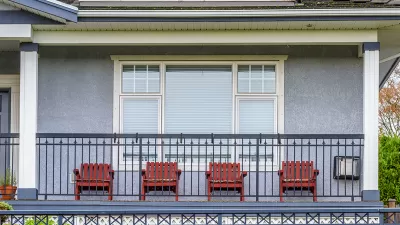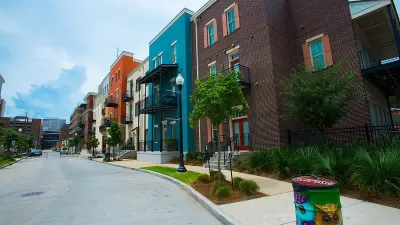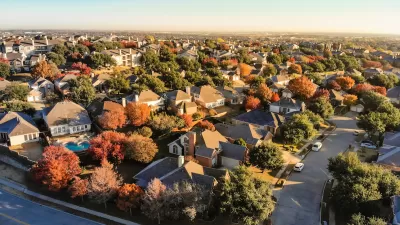Housing advocates tend to agree that we need to supplement market-rate luxury development with subsidized affordable housing, but rarely do we ask the market to provide housing for people further down the income ladder. That's bad policy.

There has been a renewed interest in the role that the real estate market can play in solving our growing affordable housing crisis. For decades "affordable housing" has been the near exclusive domain of the public sector, but the crisis has reached the point where we are now calling for all hands on deck. Can private capital, private development companies, and market-rate housing developments help make housing affordable for everyone?
This is a controversial topic. Here on Rooflines and elsewhere, housing advocates fall into two competing camps: one argues that we need market-rate development (even luxury development) to bring housing costs down, and the other asserts that building more high-end housing makes things worse for low-income people.
I think my piece published earlier this year, “Why We Must Build,” put me firmly in the pro-development camp—with reservations—but I worry about the increasingly pervasive assumption that the market can only build housing for the very rich.
Housing advocates tend to agree that we need to supplement market-rate luxury development with subsidized affordable housing, but rarely do we ask the market to provide housing for people further down the income ladder. This dichotomy of new market-rate housing only for the rich and new affordable housing only for the poor has become the de facto housing strategy in most American cities. We can do better.
The market is not going to provide for the housing needs of the poor—we need publicly subsidized social housing—but we can’t give up on the market providing new housing for middle- and working-class people.
In a follow-up piece I'll outline what I think it would look like if we were to encourage (and frankly just allow) the market to build housing for middle-income and working-class people, but right now I want to point to a different way of thinking about why building only for the rich is bad policy.
The idea that building high-cost housing will eventually help everyone by freeing up lower-cost units elsewhere in the market is known as "filtering." Peter Cohen recently posted a broad critique of this approach, which boiled down to "filtering works too slowly." I agree, though I don’t see that as a reason to block new development (better to address a problem slowly than not at all). I think there is a much bigger problem with filtering as a housing strategy.
FULL STORY: Housing Doesn’t Filter, Neighborhoods Do

Planetizen Federal Action Tracker
A weekly monitor of how Trump’s orders and actions are impacting planners and planning in America.

Map: Where Senate Republicans Want to Sell Your Public Lands
For public land advocates, the Senate Republicans’ proposal to sell millions of acres of public land in the West is “the biggest fight of their careers.”

Restaurant Patios Were a Pandemic Win — Why Were They so Hard to Keep?
Social distancing requirements and changes in travel patterns prompted cities to pilot new uses for street and sidewalk space. Then it got complicated.

Maui's Vacation Rental Debate Turns Ugly
Verbal attacks, misinformation campaigns and fistfights plague a high-stakes debate to convert thousands of vacation rentals into long-term housing.

San Francisco Suspends Traffic Calming Amidst Record Deaths
Citing “a challenging fiscal landscape,” the city will cease the program on the heels of 42 traffic deaths, including 24 pedestrians.

California Homeless Arrests, Citations Spike After Ruling
An investigation reveals that anti-homeless actions increased up to 500% after Grants Pass v. Johnson — even in cities claiming no policy change.
Urban Design for Planners 1: Software Tools
This six-course series explores essential urban design concepts using open source software and equips planners with the tools they need to participate fully in the urban design process.
Planning for Universal Design
Learn the tools for implementing Universal Design in planning regulations.
Heyer Gruel & Associates PA
JM Goldson LLC
Custer County Colorado
City of Camden Redevelopment Agency
City of Astoria
Transportation Research & Education Center (TREC) at Portland State University
Camden Redevelopment Agency
City of Claremont
Municipality of Princeton (NJ)





























